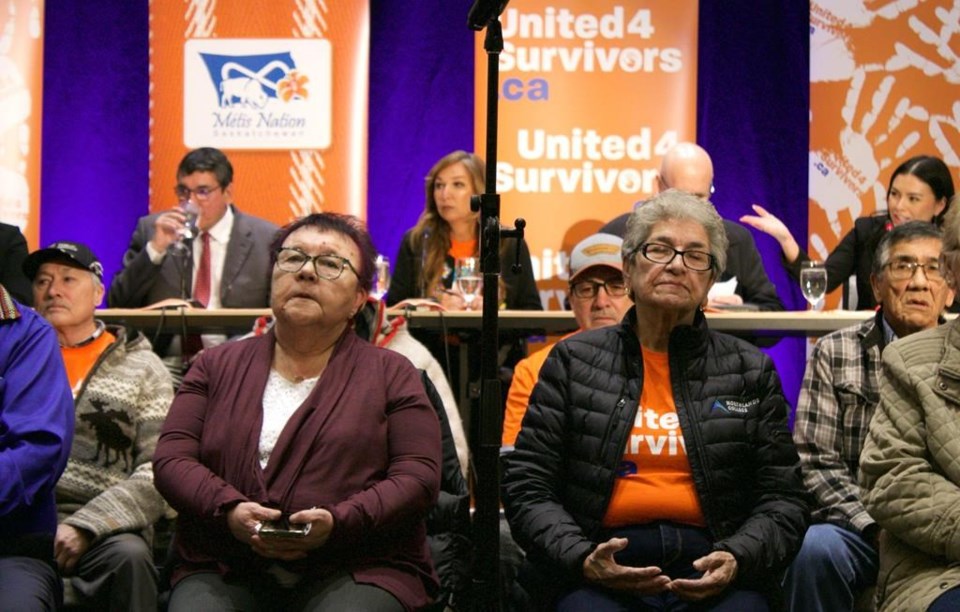WHITECAP, Sask. — Survivors of a residential school that housed Métis children in Saskatchewan have filed a proposed a class-action lawsuit against the federal and provincial governments.
The Île-à-la-Crosse Residential Boarding School opened in the 1820s and operated for more than 100 years in the northern village. It burned down in the 1970s.
"All we asked was to be treated fairly as survivors," said Louis Gardiner, who began attending the school when he was five years old.
Gardiner told a news conference Tuesday that he was identified at the school by a number, not his name. He said survivors of the school experienced abuse and a loss of culture and language.
"If we were caught speaking our language, the strap was there."
Survivors of the Île-à-la-Crosse Residential Boarding School were not included in the Indian Residential Schools Settlement Agreement because the school was determined not to qualify.
A memorandum of understanding was signed with Ottawa in 2019, but the group said discussions weren’t successful.
Survivors said they are suing the governments for the roles they played in operating the school and for breaching legal duties to care for them.
Île-à-la-Crosse Mayor Duane Favel said the boarding school caused the same intergenerational trauma as other residential schools. Time is of the essence, he said, because at least 20 survivors have died in the last year.
"It's heartbreaking to know that we are still struggling to get recognized as a Métis residential school," Favel said.
Île-à-la-Crosse is a Métis community and people largely spoke Cree and Michif. Children from neighbouring Dene communities were also sent to the school.
Métis Nation-Saskatchewan Vice-President Michelle LeClair said she hopes the lawsuit will bring both levels of government to the table to find a solution.
"The harm is tremendous," she said.
No statements of defence have been filed, and the federal government did not immediately provide comment.
The province said in an email that as the matter is currently before the court, it is unable to provide comment at this time.
This report by The Canadian Press was first published Jan. 24, 2023.
Kelly Geraldine Malone, The Canadian Press



